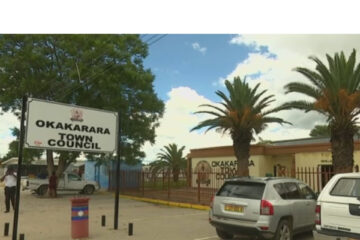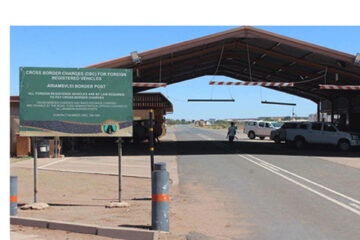Niël Terblanché
Namibia is hosting the 38th High-Level Panel for a Sustainable Ocean Economy in Walvis Bay.
The event brought together international experts, policymakers, and stakeholders to address the challenges and opportunities of sustainable ocean management.
The event, which started on Wednesday and will conclude on Friday is expected to produce robust discussions on the critical role of oceans in global prosperity and Namibia’s leadership in marine conservation.
Opening the event, Derek Klazen, the minister of fisheries and marine resources, said the Benguela Current that flows past the Namibian coast is a national treasure and the cornerstone of the country’s economy.
“The ocean is the lifeblood of our planet,” he said while also pointing to the role it plays in regulating climate, sustaining biodiversity, and providing livelihoods for billions worldwide.
He added that Namibia has long been at the forefront of sustainable marine practices.
Klazen pointed to Namibia’s achievements in ocean management which include an excellent quota system, robust surveillance measures, and the establishment of marine protected areas.
“Our commitment has not only safeguarded fish stocks but has also created jobs and enhanced community resilience which positioned Namibia as a global leader in fisheries management,” he said.
Klazen, however, acknowledged the mounting pressures on marine ecosystems, including overfishing, climate change, and pollution.
He said these threats necessitate not just national efforts but global cooperation.
“Ocean governance is not the responsibility of one nation alone; it requires regional and global cooperation,” he said while also calling for bold and transformative solutions.
The High-Level Panel, co-chaired by Norway and Palau, brought together 18 world leaders committed to a sustainable ocean economy.
Klazen urged participants to prioritize strengthening partnerships, fostering blue economy innovations, and enhancing climate resilience.
He stressed the importance of community involvement in ocean management and pointed Namibia’s co-management schemes with coastal communities as a model for inclusive governance out as praiseworthy.
The Minister also stressed Namibia’s readiness to collaborate on combating illegal fishing and promoting renewable marine energy and sustainable aquaculture.
He urged the panel to turn commitments into actionable results because all efforts will make a difference.
Klazen informed participants that Namibia is in the final stages of developing its Blue Economy Policy, which seeks to harmonise economic growth with ocean conservation.
He reminded participants about President Nangolo Mbumba’s words while speaking at the World Oceans Day earlier this year.
He said that the president, during this event, said that it is the country’s ambition to manage 100% of its ocean area sustainably by 2025.
Klazen reiterated Namibia’s commitment during this week’s panel meeting in Walvis Bay.
The minister called for a shared resolve among the delegates to enhance ocean governance and ensure sustainable prosperity for coastal communities worldwide.
“Let this gathering in Namibia not only inspire change but also solidify our collective resolve to leave a legacy of sustainable ocean stewardship for generations to come,” Klazen concluded.




